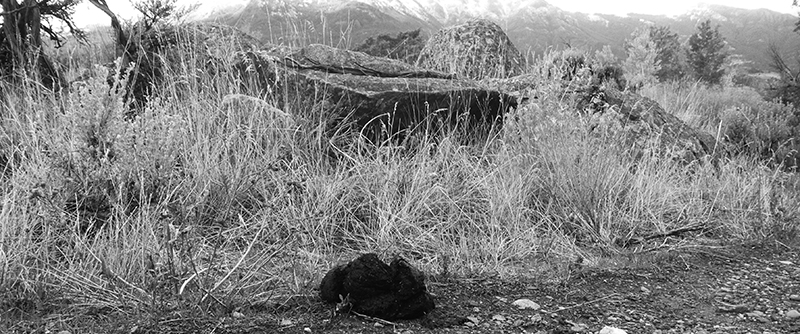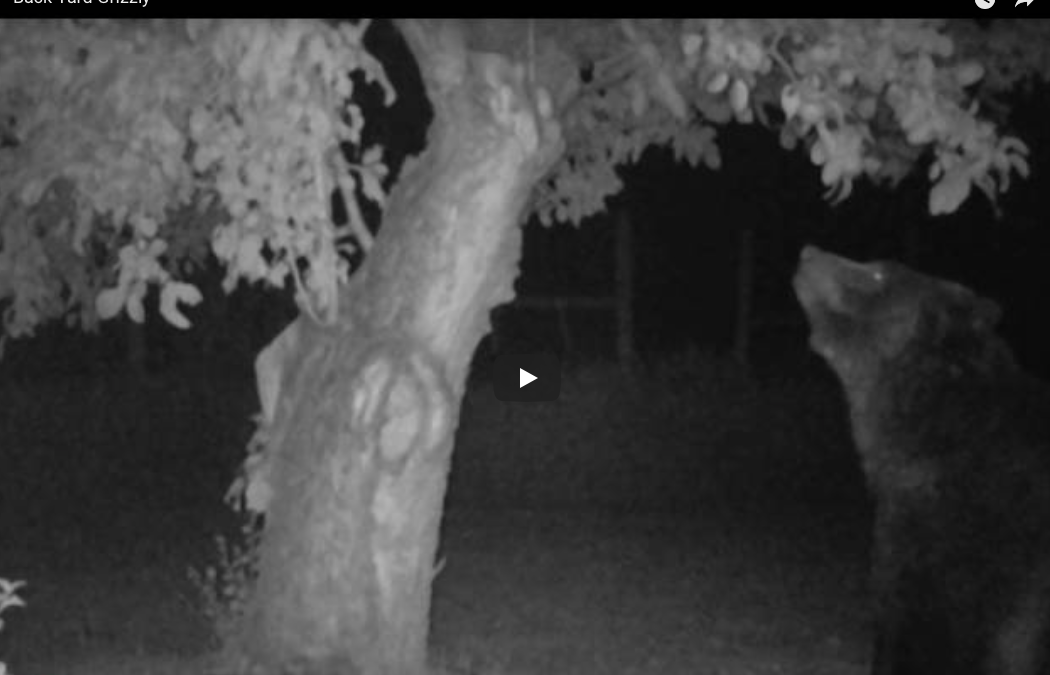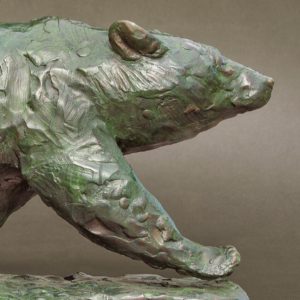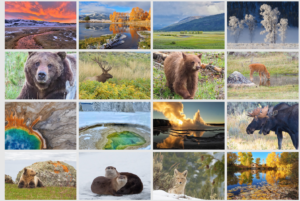Footage compliments of K. Short
Backpack, check. Coat, check. Lunch, check. Bear spray….. check. With the arrival of autumn comes the return of morning walks to the bus stop with young George, apples ripening on the tree, and the prospect of coming face to face with one of North America’s largest carnivores. According to the “nightly news” of Gardiner, Montana–reported via footage from backyard trail cameras and Facebook–one or more grizzly bears have been making the rounds through the backyards and streets of town in search of apple trees and improperly secured garbage.
Our neighbors reported signs of a grizzly in their yard just recently. And as we make that early morning walk along the gravel drive to the bus stop, the bears are returning to wooded areas to settle down after a night on the town. Late fall means hyperphagia – a bear’s version of binge eating – to put on as much weight as possible before a long winter hibernation. They roam the landscape like vacuum cleaners, voraciously searching for food that will help them pack on the pounds. For some of the ecosystem’s grizzlies, this means scavenging carcasses, or foraging at high elevations for white-bark pine nuts and army cutworm moths – the ‘butterballs’ of bear cuisine, living packets of fat and protein which take refuge by the millions beneath the rocks on the high rocky slopes of the Gallatin and Absaroka mountains.
But each year, at the tail end of apple harvest season, a handful of bears venture down from the mountains to roam the backyards and streets of Gardiner in search of an easy meal; apples, garbage, dog food, bird feeders. We watch daily for the tell-tale signs; big piles of orange scat filled with apple skins, and limbs ripped from the unlucky trees. Like most people in town, we try to be good neighbors; picking apples early, collecting fallen ones from the ground, and carefully storing our trash and any other attractants in hopes of avoiding a surprise encounter. Even so, it’s nearly impossible to remove everything. Habit, fueled by flawless memories and an uncanny sense of timing, lead them back to years-old feeding sites in hopes of just one more reward.
So, with a slight tingle on our necks, we walk the 200 yards to the bus stop, past the apple grove, wondering what may be bedded in the sage or aspens along the way. Some might think we’re crazy, but we wouldn’t trade it for anything. What would this world be without things that make us feel small, inadequate or outright terrified at times? Grizzlies are the very essence of what lies in the heart of these mountains – wildness. Whether it’s bison in the backyard or grizzlies at the bus stop, to live in the Greater Yellowstone Ecosystem is to live a wild life.

As always, the bear has the last word.
=>>Want to know how birds and mammals will tell you there’s a predator – like a bear – in the area? Watch our free webinar Secrets of Animal Language: How & Why To Tune In To Wild Conversations. You can sign up to watch it here: https://www.ayellowstonelife.com/animal-language-webinar/



